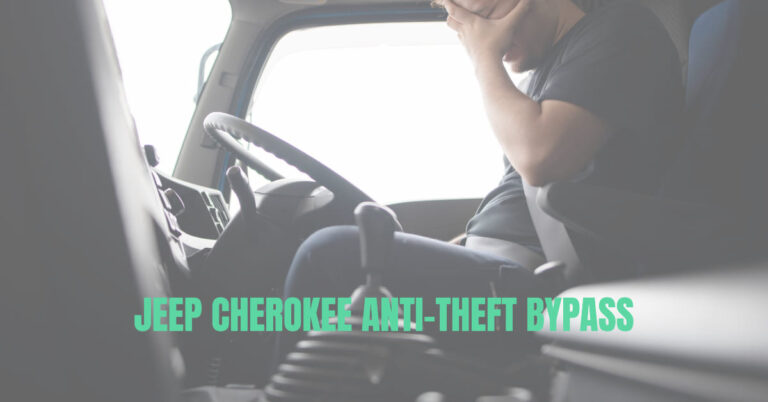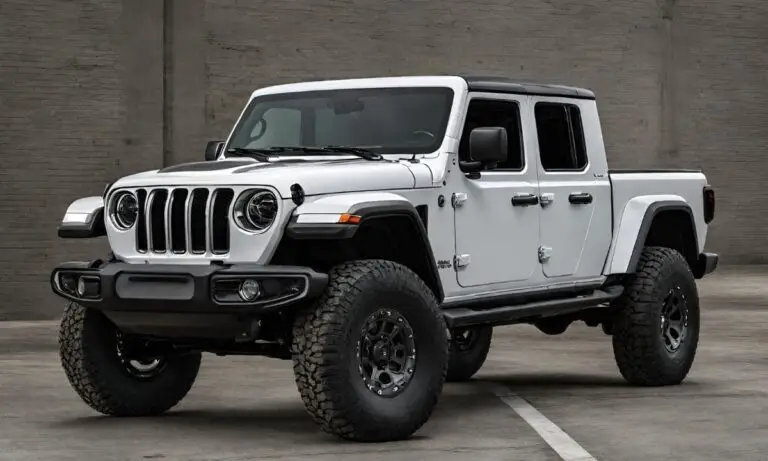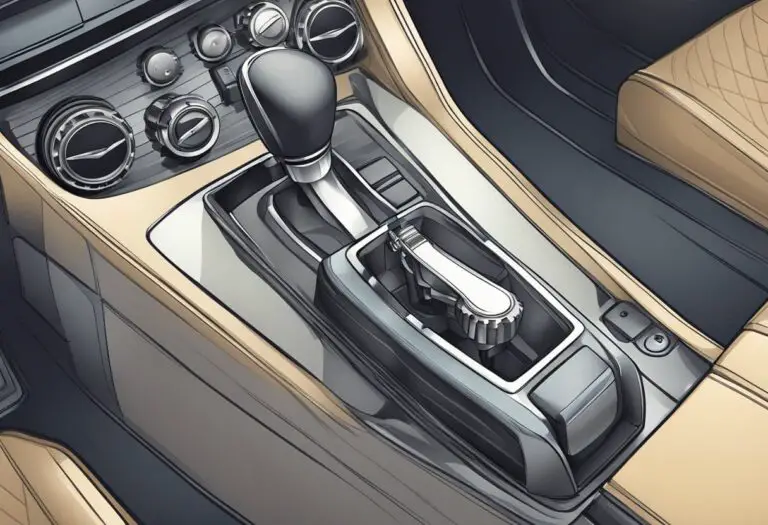Jeep Trail Rated Vs Non Trail Rated (What’s The Difference)

Are you looking to buy a new Jeep and wondering what the difference is between a trail rated and non-trail rated model? As an avid Jeep owner and off-roading enthusiast, I was curious about this too.
In this comprehensive guide, I’ll explain everything you need to know about Jeep’s trail rated badge, the rigorous testing trail rated Jeeps go through, and the key capabilities they have. I’ll also discuss the advantages of choosing a trail rated Jeep over a non-trail rated one, popular Jeep models with the badge, and what type of trails they can handle.
By the end of this post, you’ll understand the key differences between trail rated and non-trail rated Jeeps so you can decide which is best for your needs. Let’s hit the trails!
Table of Contents
What Does the Trail Rated Badge Mean for Jeep Vehicles?
Jeep’s trail rated badge indicates that a particular Jeep model has passed a series of grueling off-road tests and is specially equipped to handle challenging terrain. Jeeps with the trail rated badge are optimized for off-road conditions and equipped with additional drivetrain, suspension, and body components to improve their off-road capabilities.
The trail rated badge is only given to Jeep 4×4 vehicles that excel in five categories:
- Traction – Ability to move over uneven surfaces and up steep grades
- Ground Clearance – Minimum lowest point needed to clear obstacles
- Maneuverability – Precision steering and handling on difficult obstacles
- Articulation – Flexibility to conquer uneven terrain
- Water Fording – Ability to safely cross streams and bodies of water
Jeep puts prototype vehicles through extreme off-road testing before awarding them the coveted trail rated badge. This shows that a trail rated Jeep is engineered to handle rigorous off-road driving and challenging trails.
What Tests Does Jeep Put Trail Rated Vehicles Through?
For a Jeep to earn the trail rated badge, it must pass a series of grueling tests at off-road facilities to prove its mettle. Jeep has several testing sites located in harsh conditions and difficult terrain:
- Moab, Utah – Rocky trails with steep inclines, declines, and off-camber conditions
- Davis Dam, Arizona – Punishing desert heat with rocky, sandy, and uneven ground
- St. George, Utah – Harsh desert terrain with deep sand pits and washboard surfaces
- Northern Michigan – Unforgiving snow, ice, slush, mud and wet conditions
Prototypes are tested 24 hours a day on these brutal off-road trails to see how they handle repeated abuse. Test drivers deliberately push vehicles to their limits by:
- Driving through deep water crossings up to 19 inches
- Traversing dirt mounds and rocky terrain at steep angles
- Turning sharply on uneven ground and embankments
- Accelerating to high speeds over rough washboard surfaces
- Braking hard on loose sand and gravel declines
Additionally, Jeep uses its Chelsea Proving Grounds in Michigan to test critical components like skid plates and underbody protection. Vehicles drive over sharp rocks, stumps, and logs to evaluate the durability of underbody parts.
By passing these extreme tests, a trail rated Jeep proves it can withstand the roughest off-road terrain and driving challenges. The badge indicates proficiency across all rating categories.
Key Capabilities of Trail Rated Jeeps
Earning the trail rated badge requires excelling in five key areas. Here are the top capabilities trail rated Jeeps possess:
Ground Clearance
To handle clearance issues over rocks, logs, and uneven ground, trail rated Jeeps have a minimum ground clearance of 8.7 inches. This allows them to clear obstacles on rugged trails without damaging the underbody. Non-trail rated Jeeps often have less ground clearance.
Traction
Trail rated Jeeps are equipped with features like four-wheel drive, aggressive tread tires, and advanced traction control to master muddy, icy, sandy, and loose terrain. This improves grip when ascending steep grades or driving over slick surfaces.
Articulation
The suspension on trail rated Jeeps allows for increased wheel travel and axle articulation. This lets all four wheels maintain contact with the ground even on severely uneven terrain. Flexible suspension keeps the tires planted for traction.
Water Fording
Jeeps are specially sealed to safely cross bodies of water up to 19 inches deep. Electrical connections, body openings, and the air intake system are designed to handle full immersion. Trail rated Jeeps can traverse streams without flooding the engine.
Maneuverability
Trail rated Jeeps have an optimized wheelbase and precision steering that allows them to adeptly maneuver around obstacles, sharp turns, and embankments without rollover. This is vital for navigating narrow trails.
With these robust capabilities, Jeeps with the trail rated badge can tackle off-road driving challenges that non-trail rated vehicles cannot.
Why Get a Trail Rated Jeep Over a Non-Trail Rated Model?
There are some key advantages to choosing a Jeep with the trail rated badge if you plan to go off-roading:
Proven Off-Road Ability
Trail rated Jeeps have passed rigorous tests in extreme conditions, so you can trust they can handle tough terrain. Non-trail rated models have not proved themselves in this way.
Better Ground Clearance
The increased minimum ground clearance on trail rated Jeeps allows you to clear logs, rocks, and ditches without damaging the underbody. Non-trail rated models often have less clearance.
Enhanced Traction Systems
With features like four-wheel drive, limited slip differentials, and all-terrain tires, trail rated Jeeps can power over mud, sand, snow, and loose dirt with ease.
Increased Articulation
Trail rated Jeeps have flexible suspension systems enabling all four wheels to maintain contact on uneven ground for continuous traction. This is great for rock crawling.
Water Fording Ability You can ford streams and puddles worry-free in a trail rated Jeep thanks to its sealed electrical system and drivetrain. Non-trail rated models may not handle water as well.
Better Maneuverability Precision steering and optimized wheelbase allow trail rated Jeeps to adeptly maneuver over obstacles, around switchbacks, and on side slopes.
For serious off-road enthusiasts, investing in a capable trail rated Jeep is worthwhile. The enhanced capabilities will allow you to challenge more adventurous trails with confidence.
Popular Trail Rated Jeep Models
Many Jeep models offer the trail rated badge, ranging from small crossovers to full-size SUVs. Here are some of the most popular trail rated choices:
Jeep Wrangler
The iconic Jeep Wrangler is the pinnacle of off-road capability. With solid front and rear axles, high ground clearance, and advanced 4WD, the Wrangler devours challenging terrain and rocks. No surprise it proudly wears the trail rated badge.
Jeep Cherokee
Although a crossover SUV, the mid-size Cherokee maintains impressive off-road skills thanks to available four-wheel drive, the Selec-Terrain system, and increased ride height. The Cherokee Trailhawk model comes trail rated.
Jeep Grand Cherokee
With a car-like ride yet sturdy construction, the Jeep Grand Cherokee crossover SUV can still handle off-road driving when equipped with four-wheel drive. The trail rated Grand Cherokee Trailhawk model is a favorite.
Jeep Renegade
Jeep’s smallest SUV still packs some off-road punch. The Renegade Trailhawk model comes with a higher ride height, low-range gearing, and all-terrain tires to earn the trail rated badge. It’s a budget-friendly trail-ready Jeep.
From any trail rated Wrangler to a small Renegade, Jeep offers many capable off-road SUV options depending on your needs and budget. All wear the badge proudly.
What Trails Can a Trail Rated Jeep Handle?
Trail rated Jeeps are designed and tested to competently traverse off-road terrain, including:
- Dirt trails – Loose gravel, ruts, and mud
- Rocky trails – Large boulders, uneven surfaces, steep inclines
- Sand trails – Loose and shifting sandy ground with dunes
- Snow/ice – Snow-covered or icy unpaved trails
- Water crossings – Streams, ponds, or flooded dirt paths
In other words, trail rated Jeeps are engineered to confidently drive where the pavement ends. While each model has varying capability, they all can successfully navigate dirt roads, rugged 4×4 trails, sandy washes, snow-covered logging roads, and similar off-road conditions.
However, there are limitations. Trail rated Jeeps may not be equipped for the most extreme rock crawling trails that require significant suspension mods and clearance. And deep water crossings exceeding 19 inches could be problematic.
Within reasonable limits though, a trail rated Jeep can comfortably explore most off-road trails and terrain a typical owner will encounter, especially with some added mods and experience. Non-trail rated vehicles would struggle in these conditions.
Limitations of Non-Trail Rated Jeeps
While many Jeep SUVs come trail rated, some base models do not earn the badge. What are the limitations of non-trail rated Jeeps?
Less Ground Clearance – Without a raised suspension, non-trail rated Jeeps sit lower to the ground, reducing clearance over obstacles. The underbody is more vulnerable.
Traction Issues – Many non-trail rated Jeeps come with standard road tires and basic all-wheel drive instead of aggressive off-road tires and rugged 4WD systems. Traction suffers on loose terrain.
Limited Articulation – A stiff suspension prevents non-trail rated Jeeps from flexing adequately over uneven ground. Wheels lose contact patch, reducing traction.
Not Waterproofed – The drivetrain and electrical connections may not be properly sealed on non-trail rated models. Deep water crossings risk stalling and flooding issues.
Reduced Maneuverability – Without an optimized wheelbase and tight steering, non-trail rated Jeeps lack off-road maneuverability around obstacles and switchbacks.
While non-trail rated Jeeps like the Compass and Renegade offer some light off-road ability, they lack the specialized engineering of Jeep’s true 4×4 trail rated models. Stick to smooth dirt or gravel rather than rocks, mud, sand, or water.
Should I Buy a Trail Rated or Non-Trail Rated Jeep?
So should you get a trail rated Jeep or a non-trail rated model? Here are some tips:
If you plan to go off-roading on rugged trails, buy a trail rated Jeep. The enhanced capabilities will allow you to tackle tough terrain that non-trail rated SUVs can’t handle. Models like the Wrangler and Grand Cherokee Trailhawk are great for avid off-roaders.
If you just need a dependable SUV for occasional light off-road use, a non-trail rated Jeep may suffice. Just avoid advanced rock crawling or other extreme activities. The non-trail rated Compass or Renegade offer decent light duty off-road skills.
Compare specs and components like ground clearance, 4WD systems, skid plates, suspension travel, and water fording depth to assess capability between models.
Evaluating your off-road needs and researching model specs carefully makes choosing between trail rated and non-trail rated Jeeps much easier. Pick the right tool for the trails you plan to travel.
Key Takeaways on Trail Rated vs Non-Trail Rated Jeeps
- The trail rated badge indicates a Jeep is engineered to handle rigorous off-road driving
- Trail rated Jeeps must pass extreme testing in traction, ground clearance, maneuverability, articulation, and water fording
- Key benefits include better clearance, traction, articulation, waterproofing and handling over non-trail rated models
- Popular trail rated models include the Wrangler, Cherokee Trailhawk, Grand Cherokee, and Renegade Trailhawk
- Trail rated Jeeps can comfortably navigate most common off-road trails and conditions
- Non-trail rated Jeeps have limitations in clearance, traction, suspension, water resistance and maneuvering
- Evaluate your intended off-road usage and research specs to pick trail rated or non-trail rated
Whether you want to conquer the Rubicon Trail or just cruise forest roads, I hope this breakdown gives you a better understanding of the meaningful differences between Jeep’s trail rated and non-trail rated SUVs. Equipped with this knowledge, you can pick the perfect Jeep to take on your next off-road adventure!







